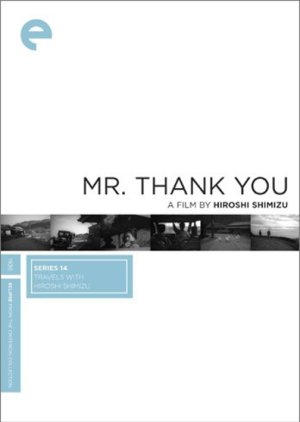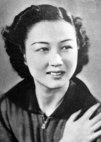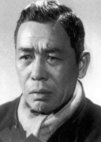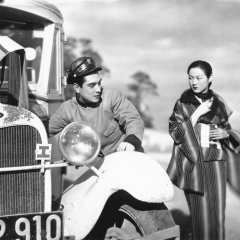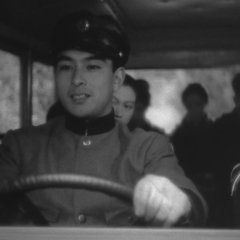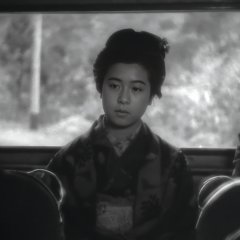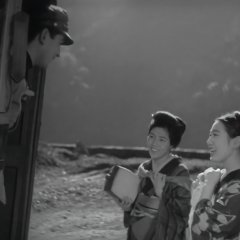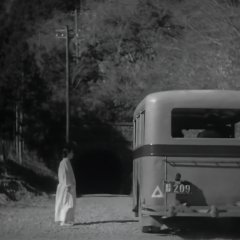- Română
- English
- magyar / magyar nyelv
- dansk
- Titlu Nativ: 有りがたうさん
- De asemenea cunoscut ca și: Arigato-san , Arigatou-san , Arigatousan , Arigatosan , 有りがとうさん
- Scenarist și Regizor: Shimizu Hiroshi
- Genuri: Comedie, Viaţă, Dramă
Cast și credite
- Uehara Ken Rol Principal
- Kuwano Michiko[Woman with a black collar]Rolul de Sprijin
- Kawamura Reikichi[Villager from Tokyo]Rolul de Sprijin
- Hayama Masao[Primary school student]Rolul Invitat
- Futaba Kahoru[Villager mother]Bit part
- Shinobu Setsuko[Villager's daughter]Bit part
Recenzie

Această recenzie poate conține spoilere
It’s only 80 km long but a lot happens here!
Mr. Thank You is a charming movie that while at times was lighthearted and comic was also not afraid to highlight the social and economic problems of the time.
Mr. Thank You drove a bus serving a rural mountainous area, on the 80 km road linking the rural area to a train station where people could travel further to Tokyo. Most travelers on the narrow, dangerous road were on foot. As he honked his horn asking them to move over, he always yelled “thank you” in a cheerful manner as the pedestrians made room for the bus, hence his nickname from the locals.
Most of the story took place on the bus which showcased a generally genial cross-reference of people from the region during The Depression. On the surface the passengers were friendly and happy. Dig a little deeper and the effects of the times became all too present. A seventeen-year-old girl was being taken by her mother to Tokyo to be sold into prostitution to help the family. Other people on the bus had experienced serious financial setbacks. Along the way people talked, sang, drank, ate, and smoked. Mr. Thank You treated everyone equally and affably, offering to carry messages, visit gravesites, and purchase records for those who asked.
Most of the passengers weren’t afforded much time for character development, but each made the most of the time offered. The small gathering of people on the road trip revealed layers of themselves and for the most part kindness and generosity toward each other.
Given the era, one scene in particular stood out to me as particularly moving. Mr. Thank You encountered a young Korean woman he had come to know who had worked on the road he drove on. He treated her with dignity and respect even though she was among the most marginalized people living in Japan at the time. Whether it was the writer or the director who found a way for that scene to slip through, it showed a subtle criticism of the government’s policies.
In addition to the subtle commentary on political and foreign policies, it was repeated many times how girls forced to go over the mountain to enter prostitution never came home. Boy children often became vagrants. The smiling characters were all too aware of the reality most of them were living in yet still willing to form temporary and perhaps longer-term relationships.
The music was perfect for a traveling story, just like Mr. Thank You, it was light and lively, keeping everything moving forward. Though faded by time, the black and white cinematography and choice of shots was stylish and creative. The scenery along the road gave a time capsule’s view of the area.
During this bumpy road trip, the viewer is treated to heartbreak, hope, kindness, and a little humor. It’s a film that will leave you feeling better, but also a little unsettled.
Considerați utilă această recenzie?
Recomandări
There have been no recommendations submitted. Be the first and add one.

